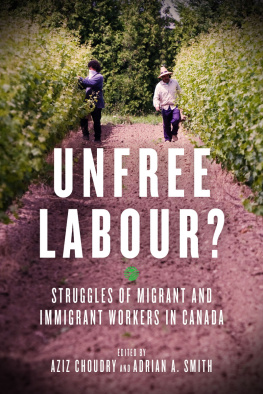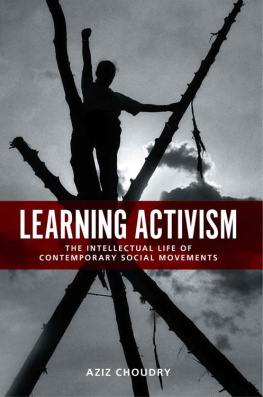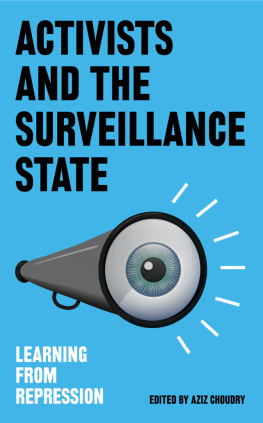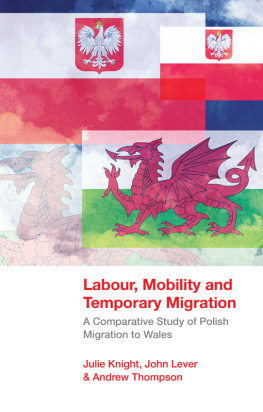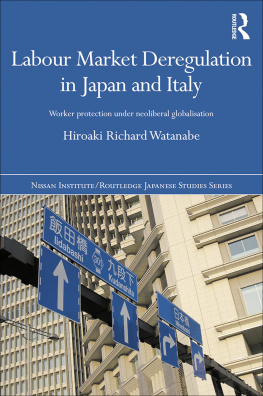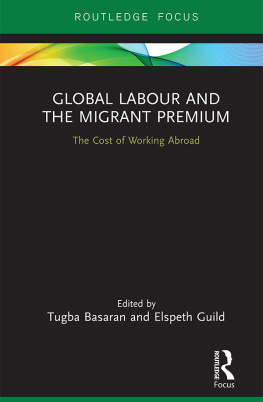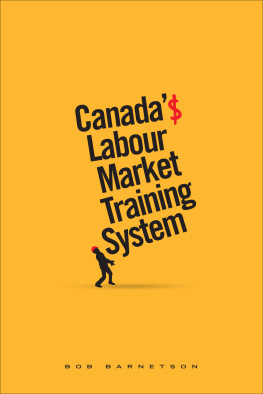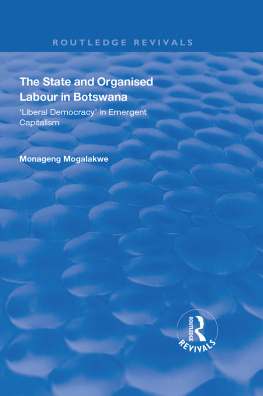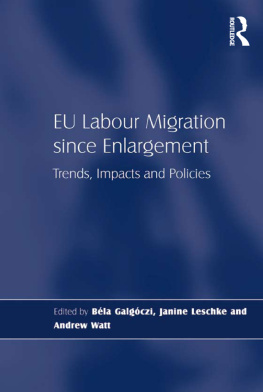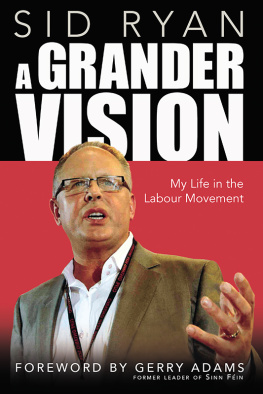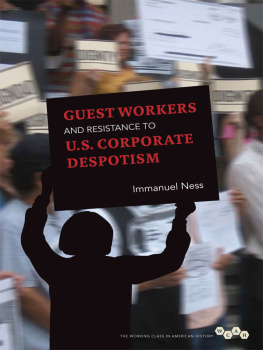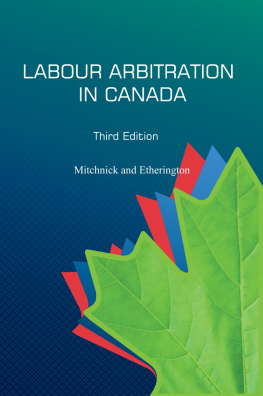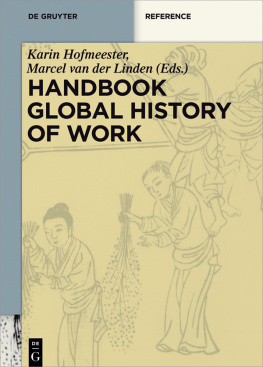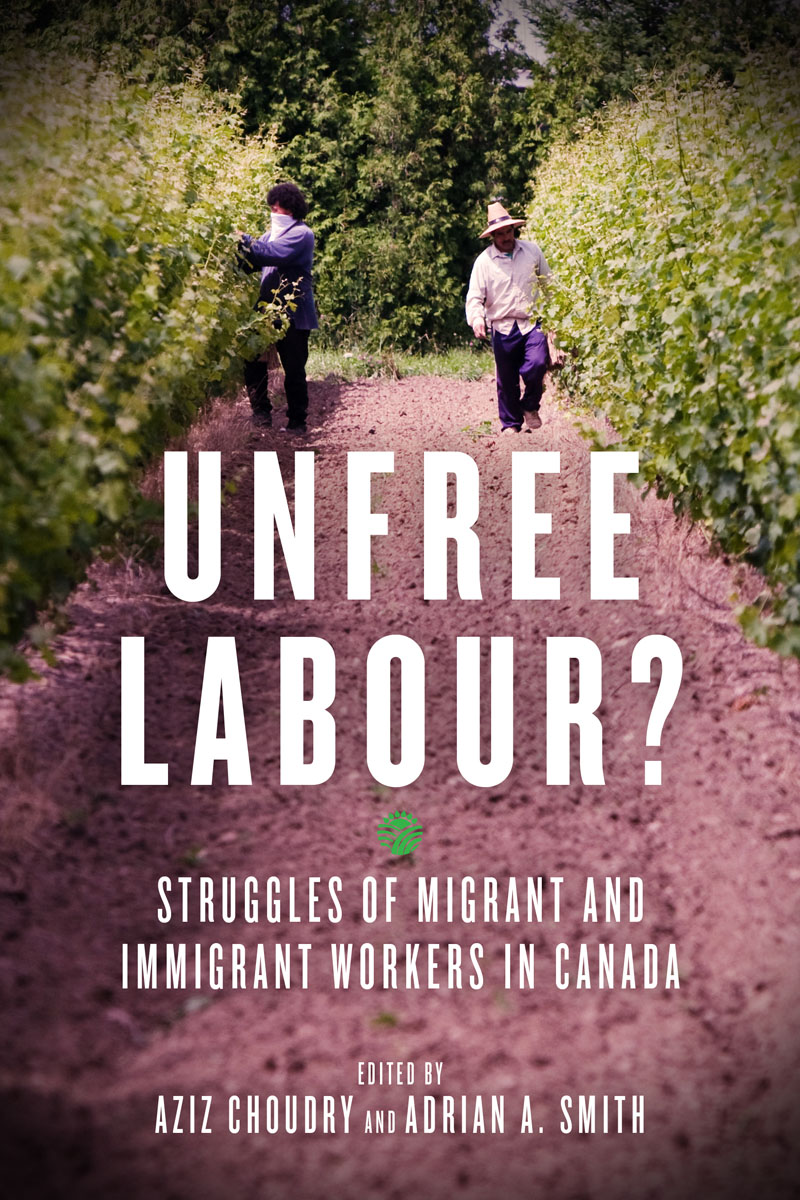
Praise for Unfree Labour?
The authors of Unfree Labour? have done us a great service, reporting and theorizing from the front lines of migrant and immigrant worker organizing in Canada. Theyve produced an internationally important book. The specific stories resonate with a global narrative, in which workers in poorer countries are freed to bring their labour to serve the rich, and are then rendered permanently vulnerable through the collusion of employers, police and government agencies. This bitter liberty is, however, being fought: look for inspiration in the reflections by organizers on resisting racialized capitalism, and the victories theyve achieved, far from the medias gaze, in fields, factories, the fast food sector, and homes.
Raj Patel, author of The Value of Nothing and Stuffed and Starved
Analyzing the contemporary production of unfree labour in Canadas immigration and neoliberal economic policies, this book makes an excellent contribution to the fields of labour and migration studies. Grounded in the struggles of migrant workers against racialized bondage, the studies presented by Choudry and Smith draw much needed attention to one of the most important movements of our times. A must read for all concerned with labour rights and economic justice in an increasingly polarized world.
Sunera Thobani, author of Exalted Subjects: Studies in the Making of Race and Nation in Canada
Choudry and Smith have put together an impressive collection of authors who reveal the ugly truth about Canadian so-called values: that Canada is a willing participant and leader in the exploitation, racialization, and commodification of human labour on stolen land. They reveal much about a human dignity that shines a light on the Canadian hubris and myth of being a champion of human rights as families and people are torn asunder in the name of profit and privilege.
David Bleakney, second national vice president, Canadian Union of Postal Workers
Unfree Labour? systematically shows how rapacious capitalists and the state thrive and secure profits through the systematic subordination of women, nonwhite, and migrant labourers. The chapters document that exploitation, so reminiscent of feudalism and early capitalism are ever-present in our modern capitalist system in the West. The chapters in this book provide chilling accounts of the constrained lives of domestics, agricultural labourers, and the growth of temporary foreign workers, so dependent on removing and denying rights that were achieved over the past two centuries. Choudry and Smith have assembled a comprehensive and outstanding book that is essential for all scholars of the labour movement.
Immanuel Ness, editor of New Forms of Worker Organization: The Syndicalist and Autonomist Restoration of Class-Struggle Unionism

Unfree Labour? Struggles of Migrant and Immigrant Workers in Canada
Edited by Aziz Choudry and Adrian A. Smith
2016 by Aziz Choudry and Adrian A. Smith
This edition 2016 by PM Press
ISBN: 978-1-62963-1-493
Library of Congress Control Number: 2016930961
Cover by John Yates/Stealworks.com
Interior by Jonathan Rowland
10 9 8 7 6 5 4 3 2 1
PM Press
PO Box 23912
Oakland, CA 94623
www.pmpress.org
Printed in the USA on recycled paper, by the Employee Owners of Thomson-Shore in Dexter, Michigan.
www.thomsonshore.com
Contents
L IST OF T ABLES AND F IGURES
Acknowledgments
T HIS BOOK WAS BORN OUT OF OUR SCHOLARLY AND ACTIVIST ENGAGEMENT with migrant and immigrant workers struggles and is very much a collaborative endeavour. First we would like to thank all of the contributors to this collection. This builds on many years of conversations, debates, and discussions in both academic and organizing contexts. Many thanks to the Immigrant Workers Centre, Montreal, for hosting the May 2013 workshop that brought together most of the participants in this book. We are also deeply grateful to Sarah Mostafa-Kemal, Lily Han, and Dsire Rochat for their hard work in different aspects of the life of this project. We gratefully acknowledge the support of a Social Sciences and Humanities Research Council Connection Grant for this project. Thanks to those readers who offered constructive reviews of earlier drafts of this book and to the PM Press team. Perhaps most importantly, we are inspired by both the historical and present struggles of migrant and immigrant workers, organizers, and movements, who have carved a path in local and global struggles against unfree labour, and for labour and immigration justice in Canada and around the world.
All royalties from this book will be donated to the Immigrant Workers Centre, Montreal.
Introduction
Struggling against Unfree Labour
Aziz Choudry and Adrian A. Smith
A T THE START OF THE TWENTY-FIRST CENTURY, C ANADA HAS EXPERIENCED considerable growth and change in labour migration. Temporary labour migration has replaced permanent immigration as the primary means by which people enter Canada. Using the rhetoric of maintaining competitiveness, Canadian employers and the state have ushered in an era of neoliberal migration (Arat-Ko 1999) alongside an agenda of austerity flowing from capitalist crisis. Labour market restructuring renders labour more flexible and precarious, and in Canada as in other high-income capitalist labour marketswhere guest or temporary labour programs proliferateemployers are relying on migrant and immigrant workers as unfree labour. We use the term unfree labour deliberately, provocatively, and analytically to contend that the formal lines of distinction between free and unfree labour, long since questioned within capitalist societies (Pentland 1981; Miles 1987; Satzewich 1991; Brass 1999), remain blurred in the period of neoliberal migration. The tendency of some to relegate the term to the past (referring, for instance, to historical forms of slavery and indentured labour) or to reject its ongoing explanatory utility sits in stark contrast to the contemporary claims and struggles of migrant and immigrant workers and organizers.
The current relevance of this book is indisputable. The years 2013, 2014, and 2015 saw renewed and sustained media attention on Canadas Temporary Foreign Worker Program (TFWP), changes to several foreign worker programs, and official announcements of reforms and promises of further changes. Yet while some of this debate reflected concerns about the
The uniqueness of this collection derives from its grounding in activist and organizing experiences, its cross-Canada scope, and the interdisciplinary scholarly perspectives that it assembles. Contributors are directly engaged with the issues emerging from the influx of temporary foreign workers and what Galabuzi (2006) describes as Canadas creeping economic apartheidthe ongoing racialization of economic inequality for many workers of colour, including permanent residents and citizens. With the erosion of trade union power, the rolling back of many employment standards and the re-regulation of the labour market to render all workers more readily exploitable (Camfield 2011), increasing numbers of workersespecially immigrant and temporary migrant workershave suffered disproportionately from low-wage employment and welfare state retrenchment.
Equally in Canada as elsewhere, many unions have failed to mobilize mass rank-and-file militancy to resist the deterioration in workplace conditions and the systematic erosion of workers power (Camfield 2011). Critical labour scholars such as Camfield argue that to build a working-class movement, unions need to radically reinvent themselves ideologically and structurally, and to learn lessons from other forms of labour organizingnot least migrant and immigrant worker organizing outside of union structures and bureaucracies. While some unions have proactively supported migrant and immigrant worker organizing, others have been hostile or indifferent to migrant workers, including refraining from supporting their struggles for decent work, respect, and immigration justice. Alternative forms of organizing have proven essential to advancing migrant workers rights, often outside of, and sometimes in tension with, established unions.
Next page
